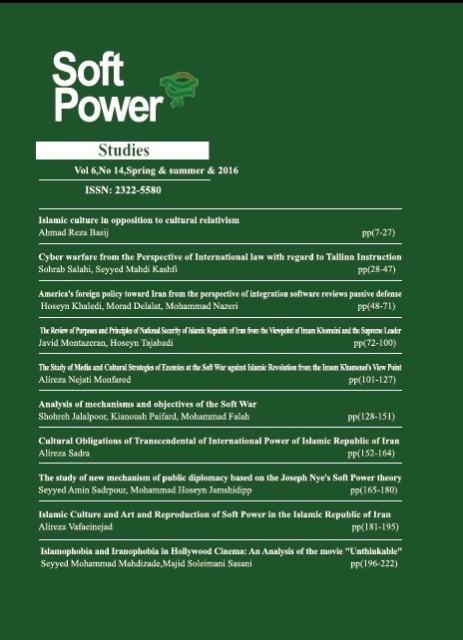Document Type : Original Article
Authors
Abstract
Technology development, internet and computer communications and commerce with traversing around has opened a new era of human activities and this undermine the legitimacy of laws is based on geographical boundaries. The new frontier of cyberspace and the real world phenomena have created a great threat in terms of the lack of full implementation of the law is necessary. Using states of the insecure cyber-ground for many of other states to vandalism, sabotage, assassinations, espionage and other crimes have been paved. Action legislation in some countries, depending on the progress in the technology world, the international community also let to think that this mess in cyberspace, though little action in order to soften the space to do this. Published books in recent years have had a dramatic impact on the world’s attention to this issue. The article seeks to answer the key question of what cyber warfare and cyber whether the country can generate destructive acts of aggression and crimes under international government is force, and consequently international responsibility. Find the answers to these questions should be sought in international documents such as the UN Charter, the convention on the law of war and humanitarian law, as well as international on cyber warfare Tallinn regarding cyber war.
Although latter guidelines, in terms of criminalization and offer some solution to some extent is a copy of the Convention of humanitarian right, but it is to a large extent comprehensive, but its guided nature is a major obstacle to its entry into force. However, examining it as a matter of international law appliance, the only international source of cyber warfare, does not seem unpleasant.
Keywords

